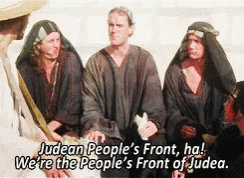D&D historian Ben Riggs--author of the upcoming Slaying the Dragon, which is a history of TSR-era (not that TSR, the real one) D&D--compiled some sales figures of AD&D 1st Edition's Player's Handbook and Dungeon Master's Guide from 1979-1990.

Go get his book! It’s going to be interesting!
Behold! Some actual D&D sales numbers!
While working on my book #SlayingtheDragon I got a ton of primary source documents containing sales data for D&D. With the book coming out, I've been looking for a way to get that data out into the wide world. I'm going to start making charts, and simply posting them. If people want the raw data, I can post that too, but obviously, charts are prettier.
I'm starting with AD&D 1st ed Players Handbook and Dungeon Masters Guide. You'll notice a crash in the mid-80s, and then the sales peter out with the release of 2nd edition.
The sales point to a fact that I believe hasn't been given enough play in our hobby. Namely, TSR was in a tight spot when Lorraine Williams took over the company from Gary Gygax. If it weren't for Lorraine, D&D may have died in the mid-80s.
Just an idea for your consideration...
Oh, and if you haven't preordered my book on D&D history yet, I'll put a link in the comments.
While working on my book #SlayingtheDragon I got a ton of primary source documents containing sales data for D&D. With the book coming out, I've been looking for a way to get that data out into the wide world. I'm going to start making charts, and simply posting them. If people want the raw data, I can post that too, but obviously, charts are prettier.
I'm starting with AD&D 1st ed Players Handbook and Dungeon Masters Guide. You'll notice a crash in the mid-80s, and then the sales peter out with the release of 2nd edition.
The sales point to a fact that I believe hasn't been given enough play in our hobby. Namely, TSR was in a tight spot when Lorraine Williams took over the company from Gary Gygax. If it weren't for Lorraine, D&D may have died in the mid-80s.
Just an idea for your consideration...
Oh, and if you haven't preordered my book on D&D history yet, I'll put a link in the comments.
Go get his book! It’s going to be interesting!
Slaying the Dragon - Macmillan
The secret and untold story of how TSR, the company that created Dungeons & Dragons, was driven into ruin by disastrous management decisions, then ...
read.macmillan.com




